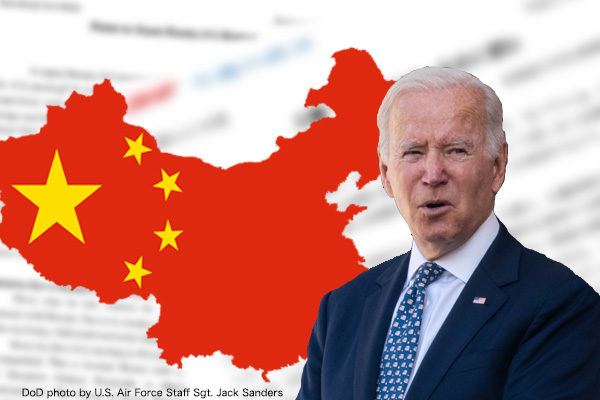The U.S. Biden administration is reportedly weighing a diplomatic boycott of the 2022 Beijing Winter Olympics.
The Olympic Games are organized by the International Olympic Committee but proclaimed open by the head of state of the host country, according to a rule attached to the Olympic Charter. The coming Beijing Winter Olympics will thus be proclaimed open by Chinese President Xi Jinping.
The rule also says:
“The head of state is received at the entrance of the stadium by the president of the IOC and by the president of the Organizing Committee for the Olympic Games. The two presidents then show the head of state into his box in the official stand.
“The delegations salute the head of state and the president of the IOC as they walk past their box.”
After the parade of the delegations, the flag bearers of all the delegations remain on the field to hear the proclamation of the opening of the Olympics by the head of state. Then, the national anthem of the host country is played or sung.
The diplomatic boycott means senior foreign government officials are absent from the opening ceremony. It represents the lowest level of critical gesture.
U.S. corporations urged not to be sponsors
The Beijing Olympics will be used by the Chinese communist regime to enhance the Communist Party’s prestige at home and abroad. I would personally prefer the winter Olympics to be postponed by one year and then held jointly by the Group of Seven industrial democracies in a manner to completely boycott the Beijing Olympics.
In the U.S., James McGovern, Democratic co-chair of the Tom Lantos Human Rights Commission of the House of Representatives, has made a similar proposal. The commission’s Republican Co-chair Christopher Smith is more radical. “The United Nations Genocide Convention says a government committing genocide should be punished,” said Smith. “I urge the IOC and all interested parties including the United States to find a new host city.” He further urged big corporations not to “enable or sponsor the ‘Genocide Olympics.’”
When an Olympic boycott is discussed, people may feel sorry for athletes. But I feel sorry for athletes who would be forced to salute Xi in the VIP box. Like-minded countries should decide not to participate in the opening ceremony of the Beijing Olympics including the parade of delegations.
In 1980, sixty-five countries including Japan boycotted the Moscow Olympics. Remarkably, China joined the boycott. Even Iran with the most radical anti-U.S. regime came into line, contending that the Islamic Republic could not tolerate Soviet aggression of fellow Islamic Afghanistan. If so, Iran may not leave China to abuse Uyghur Muslims.
Fifteen other countries, though sending delegations to the Moscow Olympics, refused to allow their national flags to be raised in the opening or medal presentation ceremony, signaling their protest intentions.
Consider delegations’ boycott of opening ceremony
In fact, a hurdle to a diplomatic boycott is low for Japan. China only sent the director of the State General Administration of Sports to the opening ceremony of the Tokyo Olympics this year. The official, though being at the ministerial level, is considered a counterpart of the Japan Sports Agency commissioner. Under diplomatic reciprocity, Japan should not send any government officials certified by the Emperor (such as cabinet ministers, senior vice ministers, ambassadors extraordinary and plenipotentiary, and envoys extraordinary and ministers plenipotentiary) to the opening ceremony of the Beijing Olympics.
The G7 countries representing the free world should take leadership in calling for a diplomatic boycott of the Beijing Olympics at minimum and even a full boycott of the Beijing Olympics opening ceremony.
Yoichi Shimada is a senior fellow and Planning Committee member, Japan Institute for National Fundamentals, and a professor at Fukui Prefectural University.


